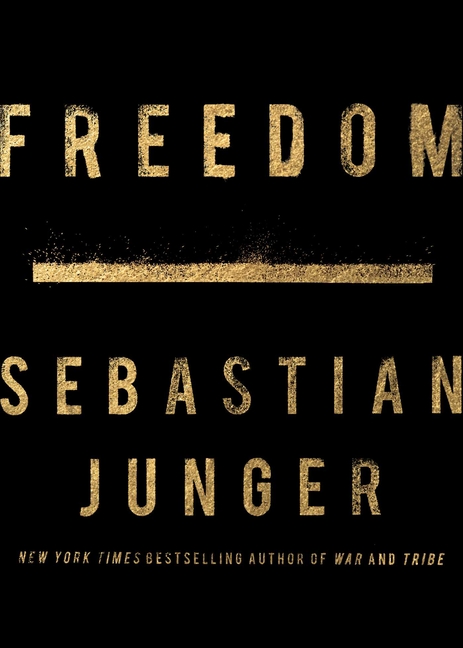... an odd, rambling book that doesn't really arrive at a conclusion, and at times seems unsure what questions it's asking in the first place ... The juxtaposition of memoir and Junger's peregrinations is meant, it seems, to provide a framework by which we might understand the concept of freedom better. The results aren't great ... filled with jarring transitions, culminating in a bizarre hypothetical question. It's difficult to follow Junger's train of thought; the effect is like listening to a lecturer who has forgotten his notes to a TED Talk and is clearly just winging it ... The rest of the book plays out much the same way, with Junger discussing a variety of subjects at variable length, cutting back to the story of his walk with his acquaintances (whom Junger never names or describes much at all), then back to more random topics, most of which are hypermasculine in nature ... Much of Freedom is inflected with a kind of tough-guy bravado ... Junger does make some solid observations along the way...But many of his assertions are, to put it mildly, bizarre ... an inexplicable book until the last page, when Junger discloses a personal circumstance—his first really human moment of the book—that illuminates, obliquely, why he set off on his voyage in the first place. It's disarming, and it only lasts an instant, but it suggests what this book could have been had he approached it with even a slight sense of vulnerability ... But that's not the book he wrote. What Junger has given us is unfocused, half-baked, a non-answer in search of a non-question.
Read Full Review >>

